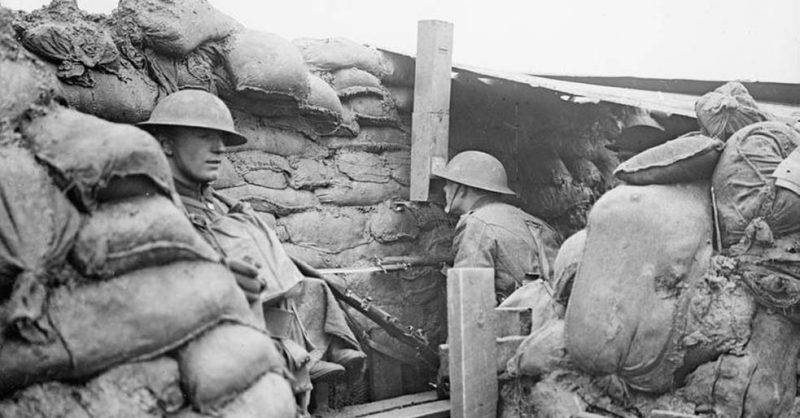Army land being cleared for housing at Larkhill, in Wiltshire (UK) has revealed a system of tunnels and trenches used to train troops for WWI.
The discovery is a first for anywhere in the world, said Si Cleggett, of Wessex Archaeology. They were being trained for the real thing and used live grenades. They have found 200 grenades in the tunnel, and half of them proved to be live, requiring they worked alongside experts with experience with live ordnance.
This was not a case of filling in a couple of hours, and then back to a warm bed in the barracks, he added. They were in them for weeks, including the vicious winter of 1916 to 1917.
Left behind were mess tins, toothbrushes, combs, condensed milk, and a jar of Canadian cheese amongst other items. A bucket was found that had been jury-rigged to act as a brazier to assist in countering bitterly cold nights.
No detailed plans for the tunnels and trenches survived, but some people knew of them following the war, evidenced by a motorbike from the 1950s and a 1930s red MG sports car.
The site is replete with evidence of the soldiers who learned there. Many of the tunnel walls are covered with graffiti. Some have been matched to service records, including those of coal miners from Yorkshire.
Archaeologists believe the training land started with trenches, with tunnels added from 1915 as the type of war, and the realization the war would not end by Christmas. In some locations, the tunnels have several layers, up to six meters below ground.
The excavation also unearthed a plethora of prehistoric material, centered in the dry valley through which the Avon River once flowed. Discoveries included a small henge monument, Iron Age round huts used at the time of the Roman invasion, and a small pottery beaker containing the bones of three children buried 40 centuries ago, The Guardian reported.
The tunnels were discovered as work began on the army land to prepare a location for 400 new houses for service personnel and their families. The tunnels will be permanently closed and filled with slurry composed of excavated chalk prior to construction starting.
